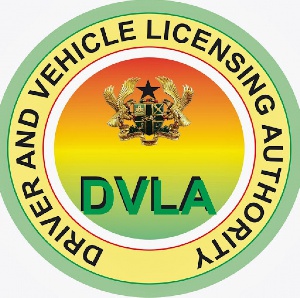With effect from July this year, the Driver and Vehicle Licensing Authority (DVLA) will be issuing licenses to applicants in a space of two weeks, the Chief Executive of DVLA, Ing. Noble John Appiah has assured.
He explained the two-week period would be after applicants have gone through all the theory and practical processes.
Explaining how that would be attainable, he said centralised capturing equipment has been acquired by the authority and it would be functional from July.
“Our processes delay now because we have to put completed works on pen drive from regions to Accra before it would be captured, but now the machine would ensure the smooth and fast running of processes,” he emphasised.
Ing. Appiah made this known during a familiarisation visit by the Minister of Transport, Mr Fifi Kwetey, to the DVLA headquarters at Cantonments and its offices in Accra to acquaint himself with the operations of the authority.
The DVLA boss also announced that 42 private centres have been authorised by DVLA to operate as testing centres to reduce the pressure on the authority.
He further announced that in the first quarter of 2016, 221,170 licenses were issued and 200,000 more licenses are expected to be printed by the end of July this year.
Some of the initiatives for this year, he highlighted, would be the review of the authority’s Act, establishment of training schools, premium services, trailer registration, biennial vehicle registration and development of a five-year strategic plan.
Attributing it to inadequate staff and faking of the authority’s documents, he said the company fell short of 26.71% of its revenue target.
Ing. Appiah also promised to change the bad corporate image of DVLA.
Mr Kwetey, on his part, charged DVLA to adopt innovative methods to rid the system of “goro boys”, whose activities are undermining the smooth process of acquiring licenses.
He said their activities tend to deny the state huge sums of revenue which could have been channelled to other sectors of the economy.
Business News of Monday, 9 May 2016
Source: thefinderonline.com













